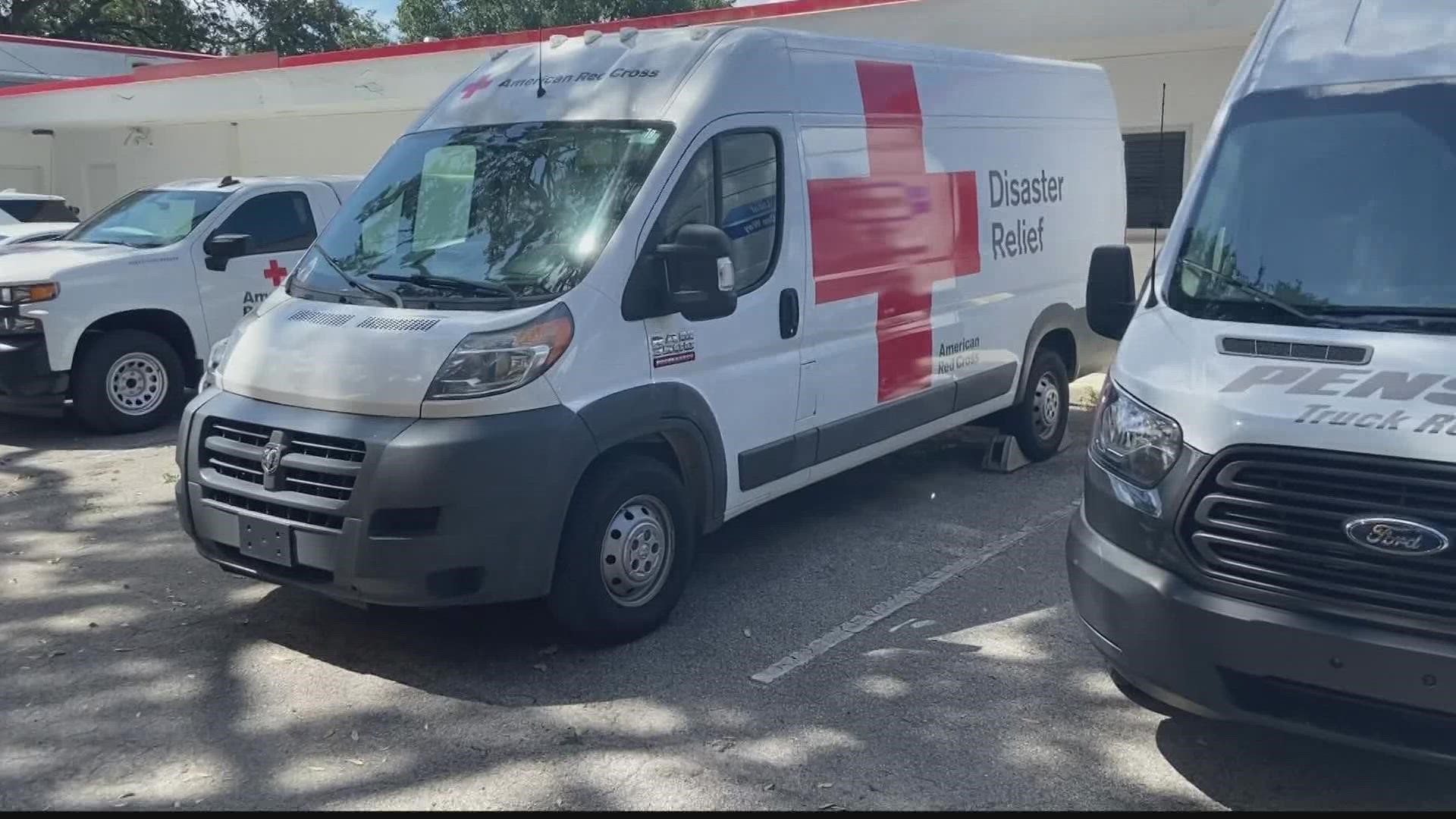ATLANTA — Nonprofits and disaster relief teams spent much of the weekend coming up with plans to assist Florida, Georgia, and other southeastern states once Hurricane Ian makes landfall.
The American Red Cross of Georgia and Caring 4 Others, Inc. are focusing on the first 24 to 48 hours after the storm hits. Both organizations call that first day or two, the most crucial time to get people shelter, food, and other supplies.
President of Caring For Others Eslene Richmond-Shockley said they've already spent days preparing for every situation.
“Planning and getting products together, getting them situated to be loaded so that wherever it hits, we could get to that location with a much-needed help that they would need at the time," Richmond-Shockley said.
Executive Director of the American Red Cross of Northwest Georgia Carla Maton said teams across the country spent much of the weekend discussing where to pre-position volunteers and contacting local governments to discuss emergency and evacuation shelters.
"For any areas that receive direct impact, families can't be in their home, we will have emergency shelters that we can set up. And then we will also open up emergency evacuation shelters, so if Georgia needs to be host to Floridians that need to evacuate, we can be ready to house those families," Maton said.
Richmond-Shockley and her team spent much of Monday prepping trucks with immediate disaster relief supplies
“Shovel and rakes and cleaning supplies, and all of that. Those are gloves and tarps and all of those types of things," she said.
Caring For Others plans to deploy their convoy in the first day or two after Ian makes landfall, with a focus on Florida at first, then moving on to Georgia assistance depending on the storm's path.
Both Richmond-Shockley and Maton are seasoned pros at leading and responding to large-scale natural disasters.
I've been doing this since 2005 with Hurricane Katrina," Richmond-Shockley said. "And that's where my adrenaline gets up because I'm ready to go out there and roll up my sleeves and get out there and help as much as we could.”
Hundreds of Red Cross volunteers are already pre-positioned in Florida, with Maton preparing to head into direct response mode herself.
“I'll be heading down to Macon. We're moving some of our staff down to south Georgia just to get prepositioned and a little closer to our local officials down there so that we can be in tune with next steps there,” Maton said.
Both nonprofit leaders said once their organizations meet the basic needs of people in the first few days, they can move to long-term and other types of assistance. They may need to call on additional volunteers and take in more supplies.
But just as the storm’s path continues to shift, so will their response efforts to reach as many people as possible
“The storm is just so unpredictable still,” Maton said.
Both organizations encourage checking their websites and downloading their apps for real-time information on assistance, emergency shelters, volunteer opportunities, and supply information.
And some extra advice from the Red Cross. Based on experience, Maton said the top things people forget when they need to evacuate are medication, pet food, and important documents.
Maton said to take putting an emergency kit together seriously, so you won’t be without potentially life-saving supplies later.

